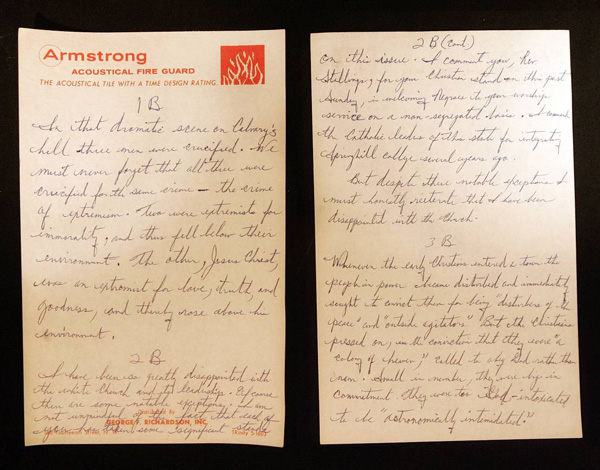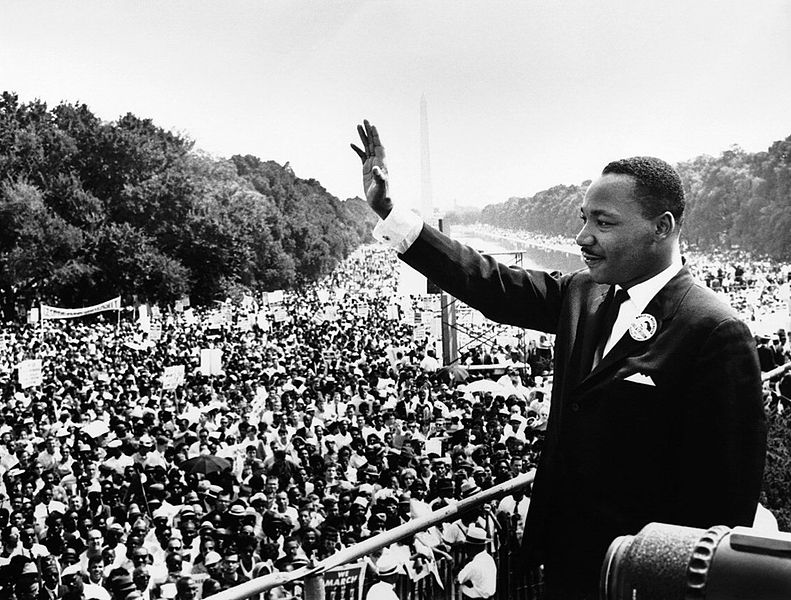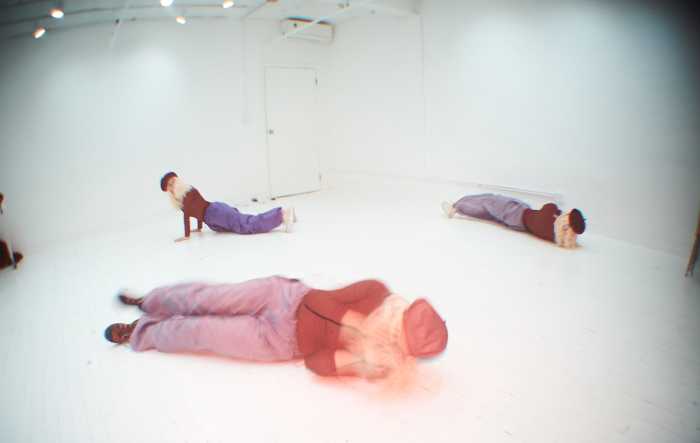As a result of his fight for civil rights, the Rev. Dr. Martin Luther King, Jr. found himself behind bars in Birmingham, AL in 1963.
During his time in prison, he found himself under the criticism of eight white clergymen, who said that his demonstrations were “unwise and untimely.” In return, Dr. King wrote them his famous “Letter from Birmingham Jail,” and noted that it’s easy for those who don’t feel segregation every day to tell demonstrators and protesters to wait for rights.
This letter, featured in this morning’s New York Daily News, has stood the test of time and remains one of the greatest writings in American history. Below, in a detailed, 300-word excerpt of his letter, Dr. King explains to the clergymen why waiting for rights wasn’t an option.
But when you have seen vicious mobs lynch your mothers and fathers at will and drown your sisters and brothers at whim; when you have seen hate-filled policemen curse, kick, brutalize and even kill your black brothers and sisters with impunity; when you see the vast majority of your 20 million Negro brothers smothering in an airtight cage of poverty in the midst of an affluent society; when you suddenly find your tongue twisted and your speech stammering as you seek to explain to your 6-year-old daughter why she can’t go to the public amusement park that has just been advertised on television, and see tears welling up in her eyes when she is told that Funtown is closed to colored children, and see the depressing clouds of inferiority begin to form in her little mental sky, and see her begin to distort her little personality by unconsciously developing a bitterness toward white people; when you have to concoct an answer for a 5-year-old son asking in agonizing pathos, “Daddy, why do white people treat colored people so mean?”; when you take a cross-country drive and find it necessary to sleep night after night in the uncomfortable corners of your automobile because no motel will accept you; when you are humiliated day in and day out by nagging signs reading “white” and “colored”; when your first name becomes “nigger,” your middle name becomes “boy” (however old you are) and your last name becomes “John,” and your wife and mother are never given the respected title “Mrs.”; when you are harried by day and haunted by night by the fact that you are a Negro, living constantly at tiptoe stance, never quite knowing what to expect next, and plagued with inner fears and outer resentments; when you are forever fighting a degenerating sense of “nobodiness”; then you will understand why we find it difficult to wait.

































